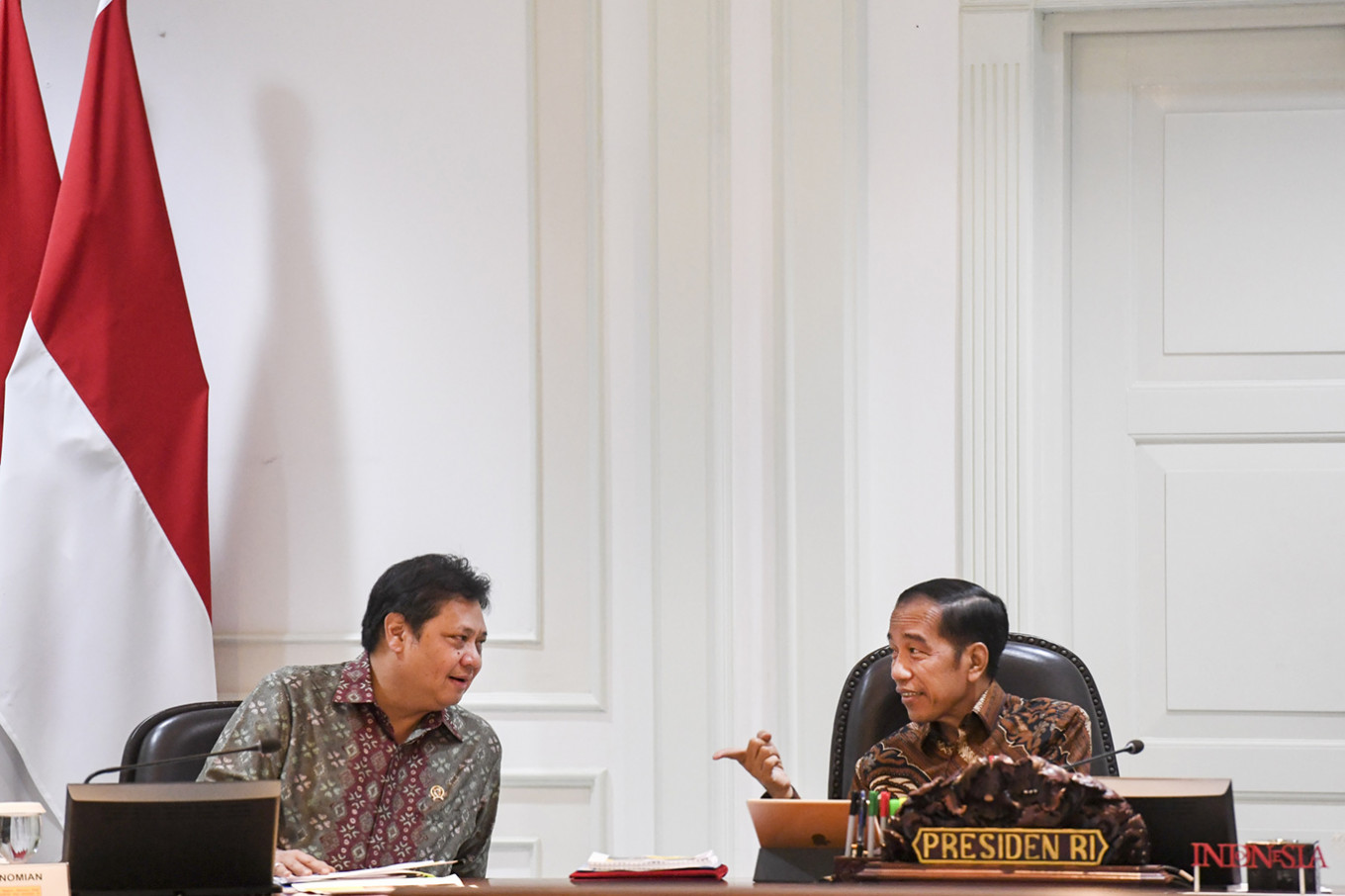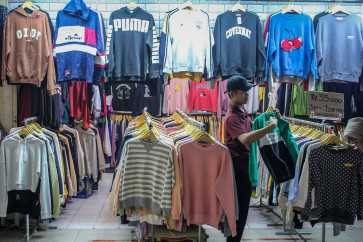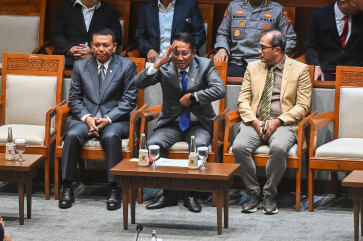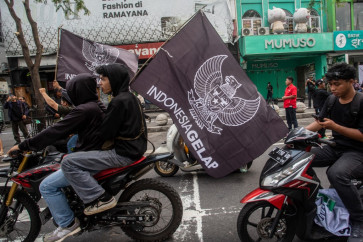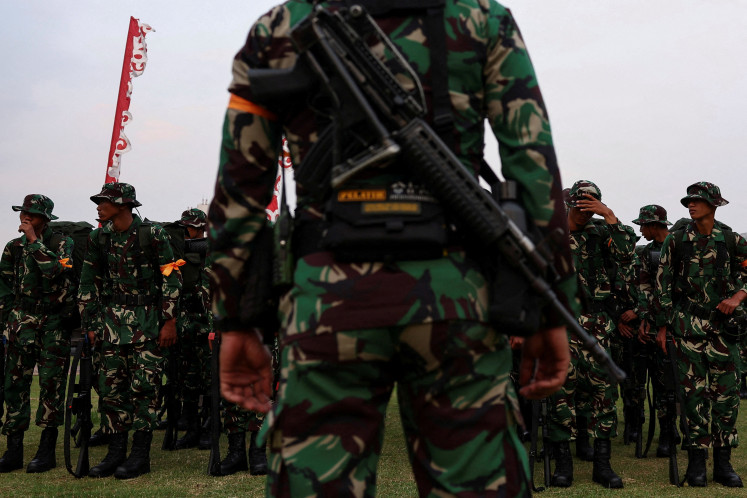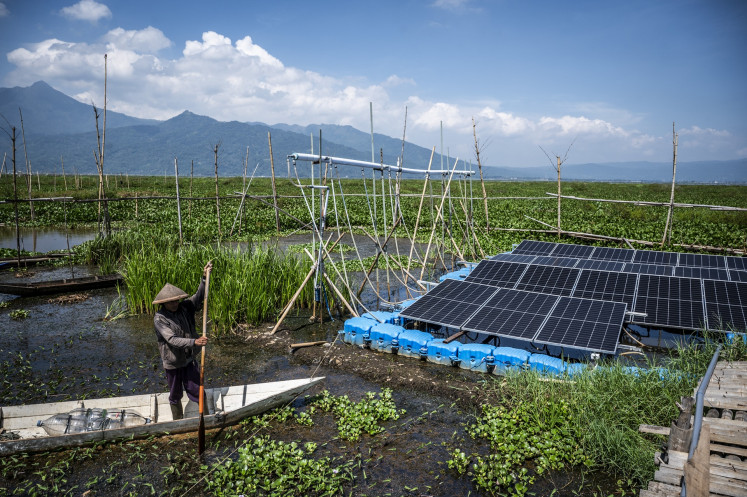Popular Reads
Top Results
Can't find what you're looking for?
View all search resultsPopular Reads
Top Results
Can't find what you're looking for?
View all search resultsB30 biodiesel policy to stay despite cooking oil shortage
Palm oil smallholders had called for a scaling-back of the policy.
Change text size
Gift Premium Articles
to Anyone
T
he government will uphold the mandatory mix of 30 percent palm oil in biodiesel (B30) despite calls from palm oil smallholders to scale back the policy.
Coordinating Economic Minister Airlangga Hartarto said on Tuesday that lowering the mandatory blending requirement from 30 percent to 20 percent (B20) – as requested by the smallholders – would mean increasing oil imports, which would strain the state budget through greater subsidy spending.
“Today, importing oil is not wise because today that commodity is at its highest price,” Airlangga told The Jakarta Post during an exclusive interview.
Crude oil prices shot to a near 14-year high of US$140 per barrel in early March as rising energy demand amid a global economic recovery was escalated by fears surrounding the Russia-Ukraine war.
The Palm Oil Smallholders Union (SPKS) and Indonesian Farmers Union (SPI) had called on the government to reduce the B30 policy as an alternative to raising palm oil export levies to ensure sufficient domestic cooking oil supplies.
Read also: Indonesia raises palm oil export levies
The unions reasoned that reducing the B30 policy would mean lowering spending on biodiesel subsidies, which is sourced from the Crude Palm Oil Support Fund (BPDKS), a fund that is also being used to subsidize cooking oil and help for palm oil farmers.
“If we lower it to B20, then we will achieve a surplus in the palm oil fund. Other than that more supply will become available, that surplus can be used to address the cooking oil shortage,” said SPKS secretary-general Mansuetus Darto on Monday.
The SPKS said the hike in export levies would erode the price for fresh fruit bunches (TBS), a benchmark for companies in purchasing palm oil fruit from farmers.
Mansuetus estimated the TBS prices would go down by between Rp 600 (4 US cents) and Rp 700 per kilogram. In Riau Island for example, the TBS price went down by 12 percent to Rp 3,723.81 per kg this week. Palm oil farmers expect the decline to continue should the policy remain in place.
The government raised the palm oil export levy earlier this week to deter companies from exporting the product amid a domestic shortage of palm oil-based cooking oil. The higher levy will add to higher shipping and container costs and deter exports.
Under the new regulation, which took effect on March 17, the maximum levy was raised to $375 per ton from $175 per ton.
Palm oil producers, including the smallholders, prefer to export the commodity as global crude palm oil (CPO) prices have rallied 25 percent this year to 6,471 Malaysian ringgit ($1,532) per ton as of Tuesday, according to Business Insider data.
Read also: High oil prices put new strains on state budget
Indonesian Biodiesel Producers Association (APROBI) chairman Tumanggor lauded the government’s stance. He said that CPO supplies were sufficient to meet domestic biodiesel and cooking oil demand.
From a total of 43 million tons of CPO produced annually, biodiesel only consumed around 10 million tons, followed by 8 million tons for food and other products and the rest was exported.
“There will never be a shortage of raw materials for cooking oil and biodiesel,” Tumanggor told the Post on Wednesday.
He reiterated that rolling back the B30 mandate would increase oil imports and disrupt the country's energy transition and emission-reduction plans to reach B100 at some point.
Following Airlangga’s statement, Tumanggor gave an assurance that stakeholders would continue working to escalate the biodiesel policy to B40.

